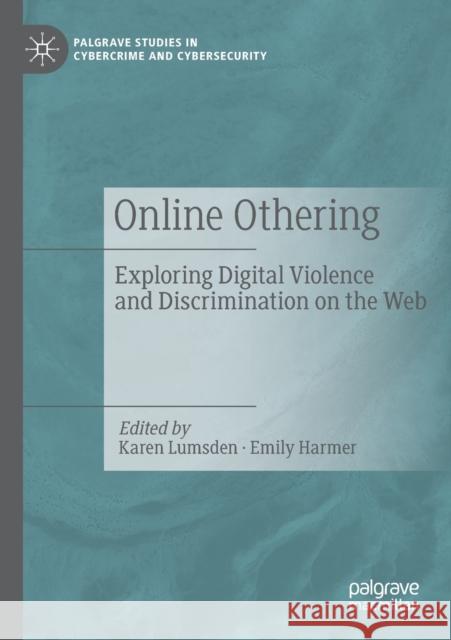Online Othering: Exploring Digital Violence and Discrimination on the Web » książka
topmenu
Online Othering: Exploring Digital Violence and Discrimination on the Web
ISBN-13: 9783030126353 / Angielski / Miękka / 2020 / 407 str.
Online Othering: Exploring Digital Violence and Discrimination on the Web
ISBN-13: 9783030126353 / Angielski / Miękka / 2020 / 407 str.
cena 644,07
(netto: 613,40 VAT: 5%)
Najniższa cena z 30 dni: 616,85
(netto: 613,40 VAT: 5%)
Najniższa cena z 30 dni: 616,85
Termin realizacji zamówienia:
ok. 22 dni roboczych.
ok. 22 dni roboczych.
Darmowa dostawa!
Kategorie:
Kategorie BISAC:
Wydawca:
Palgrave MacMillan
Seria wydawnicza:
Język:
Angielski
ISBN-13:
9783030126353
Rok wydania:
2020
Wydanie:
2019
Numer serii:
000775143
Ilość stron:
407
Waga:
0.55 kg
Wymiary:
21.01 x 14.81 x 2.41
Oprawa:
Miękka
Wolumenów:
01
Dodatkowe informacje:
Wydanie ilustrowane











